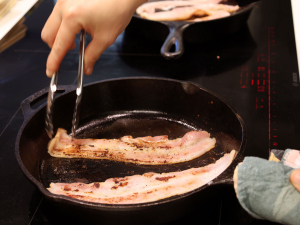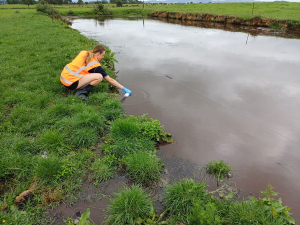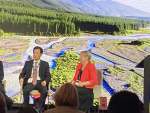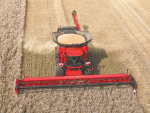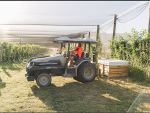Determined to compete against subsidised milk in our markets, farmers had developed clever, efficient ways to convert pasture to dollars at very low cost.
They had also, through much angst but eventual cooperation, organised themselves into cooperatives that used collective strength to extract the maximum value for our products in international markets.
These two strengths, plus our temperate climate, generated huge comparative advantage over all other milk producing countries. The climate was luck, but the rest was smart use of resource.
Convinced of the principles, I was employed in Ireland 1995 to 2000. What New Zealand had through luck – the temperate climate – so had Ireland. What Ireland lacked then, were the other two prongs of our comparative advantage: low cost milk production off grass and strong farmer-owned processing and marketing cooperatives.
The reason for the difference stuck out like dogs' testicles. Ireland was subsidised by the EU. Capitalisation had replaced knowledge and smart thinking.
They were building sheds, laying concrete, buying machines and making expensive milk when we were using stocking rate, genetics, seasonal calving and pasture management skill to make milk cheap. Our research and extension service was industry funded and focussed; Ireland's was confused, Government funded, and fixated on per cow yield. That was then.
Today, after a commodity price boom and EU reforms, the roles are starting to reverse.
Here, depreciable gear's accumulating, mowers are doing the work of cows, and cows are moving into expensive houses.
We're milking out of season. It's starting to look like the Ireland I arrived at in the mid 1990s: busy but high cost and vulnerable to volatile milk prices. Farmers' capacity for growth (debt servicing) is being limited by on-farm cost structures.
Visiting Ireland last June, we saw young Irish farmers focussed on pasture utilisation, low cost production and looking for ways to amalgamate dairy companies to minimise the effect of non-farm investment in their co-ops.
Driven by dwindling subsidies and quota abolition in 2015, they want to increase manufacturing capacity at home to compete offshore. (See the Glanbia example on www.ourco-op.co.nz).
Ireland now has some of the best grass and cow scientists in the world, while we're employing nutritionists who work for feed companies, vets that focus on individual animals, and our industry funded body is preoccupied with the sector's image.
Consultants know everything about effluent, but struggle to read accounts.
Meanwhile we're looking to invite non-farmer investment in our main co-op. According to Mark Townshend (Dairy News March 13) it promises "a big prize period and we must get on with it". A big prize for farmers? More likely a short-term jump in share price as traders and fund managers 'build the book'.
It might be a big prize for those about to exit, but was that what we all put our capital in for – to fund retirement of this generation at the expense of future ones?
It is often said family wealth is built in one generation, maintained in the next, and blown in the third.
New Zealand dairy will not get stronger by mimicking the high cost, capital intensive, supplementary feed-dependant management systems of less profitable competitors.
Nor can we keep profits flowing to farmers by mimicking the hybrid or publicly listed company ownership structures of Ireland, where they've created so much angst farmers are desperately trying to claim their co-ops back.
The opportunity is right under our feet. Let's leave our co-op structure alone, and not be the third generation that 'blows' it.



